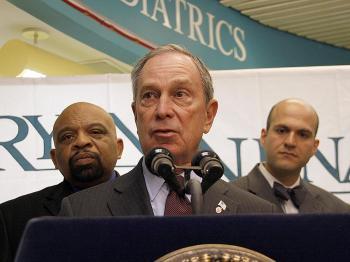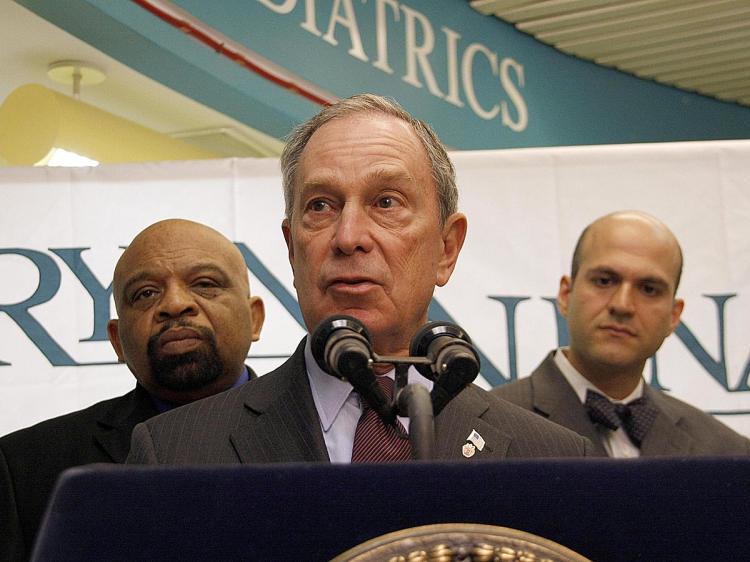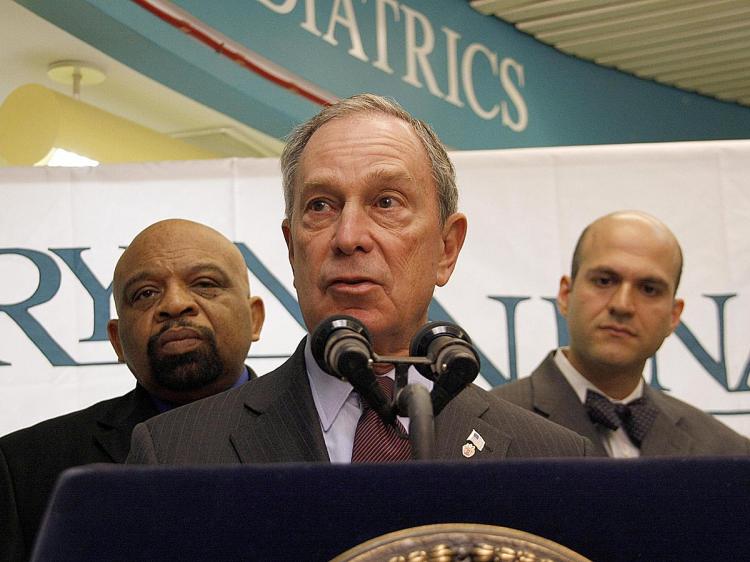He also urged federal government to draw from New York City’s health reform experience, and to address increasing health care costs and the growing number of people without health insurance.
On Wednesday, the Mayor reviewed New York City’s health reform initiatives to promote wellness, disease prevention and improved patient care at the Ryan-NENA Community Health Center in Manhattan. He also highlighted NYC’s efforts in increasing accountability and transparency of the health care providers and investing in innovative technologies.
“President Obama has identified critical nonpartisan principles that should guide any health care reform package and I support his push to enact comprehensive health care reform this year,” said Mayor Bloomberg. “Our challenge is to keep Congress at the table until they come up with a workable solution—and commit to not walking away when the going gets tough,” he continued.
“We need to ensure that federal reform strengthens and meets the needs of immigrants. At the same time, we will continue to advance our innovative efforts here in New York City to reduce smoking, encourage healthy food choices, and invest in health information technology,” further noted the Mayor. “We’ve heard a lot about how government has to step in when a company is ‘too big to fail.’ This push for health care reform is too important to fail. It’s too important to our cities. It’s too important to our nation. It’s a challenge we can’t flinch from—and it’s an opportunity we must seize,” he added.
George Gresham, president of 1199 SEIU United Healthcare Workers East, voiced his support by stating: “We are proud to stand with Mayor Bloomberg today to support President Obama’s health care reform agenda. The President’s reform agenda will help over 2 million uninsured New Yorkers gain health care coverage. During this economic crisis, it is more important than ever that we protect working families who have lost their jobs and benefits by providing them with access to quality healthcare.”
Take Care New York initiative was implemented in 2004 to promote public wellness and disease prevention. Through its identification of action-oriented goals to aid NYC residents in improving their health, the program reported surpassing its 2008 targets in colon cancer screening, primary health care access, tobacco smoking, and intimate partner homicide as early as 2007.
“New York City is a leader in developing innovative, pragmatic programs which help to tackle some of our most complicated urban challenges like poverty, improving access to primary care physicians, and expanding healthy food choices,” said Deputy Mayor for Health and Human Services Linda I. Gibbs. “But we need our federal partners to enact comprehensive healthcare reform to address the growing numbers of uninsured and underinsured New Yorkers and to bolster our safety net.”
New York City also invested in the nation’s largest primary care electronic health record (HER) community network, by providing prevention-focused EHRs to over 1,100 doctors who treat over 1 million patients in low-income communities. President Obama has included over $20 billion for EHRs in the federal stimulus funding, since national estimates show that only less than 2 percent of hospitals currently use comprehensive EHRs. These records enable doctors efficient access to information regarding patient vaccinations, screenings and other preventative disease controls, as well as enable them to track success rates in preventative measures across their patient populations.
“New Yorkers are living longer, healthier lives today because New York City invested in programs that reduce preventable illness and death,” said Health Commissioner Dr. Thomas Frieden. “By creating a comprehensive public health and health care policy, and promoting electronic health records for primary care physicians, we are focusing on what works and saving lives.”
As part of the public hospital system’s transparency initiative, the New York City Health and Hospitals Corporation (HHC) has voluntarily reported health and safety outcomes, such as infection and mortality rates across its participating hospitals on the City’s website (www.nyc.gov/hhc).
The 2008 data showed that HHC’s mortality rate decreased by 13 percent since 2003, and continued to be below the national benchmark despite an increase in the acuity of patient cases. Its infection rates in the intensive care units across 11 participating hospitals have decreased for 3 consecutive years, with a 90 percent decrease in ventilator-associated pneumonia infections and a 65 percent decrease in the central line bloodstream infections. The decline in infection rates represents over 1,000 prevented infections prevented and approximately $16 million saved in healthcare costs.
“Greater access, more transparency, robust primary and preventive care, wide-scale use of electronic health records, and more effective chronic disease management are all priorities of the Obama administration reform agenda,” said HHC President Alan D. Aviles. “They also have been the hallmark of our transformed New York City public hospital system.”
The William F. Ryan Community Health Network was also established to provide access to affordable primary and preventive health care across New York City’s medically underserved communities. Approximately 85 percent of patients who benefit from this program fall below 200 percent of the federally defined poverty level.
“No other city has put public health at the forefront like New York City has, and we are proud to work with Mayor Bloomberg and his administration to expand the availability of quality and affordable healthcare to those who need it,” said president and CEO of the William F. Ryan Community Health Network Barbra E. Minch. “The Ryan Network’s guiding principle is that health care is a right, not a privilege—and what we are seeing today is a renewed commitment by our local and national leaders to help fulfill those goals for all New Yorkers.”


